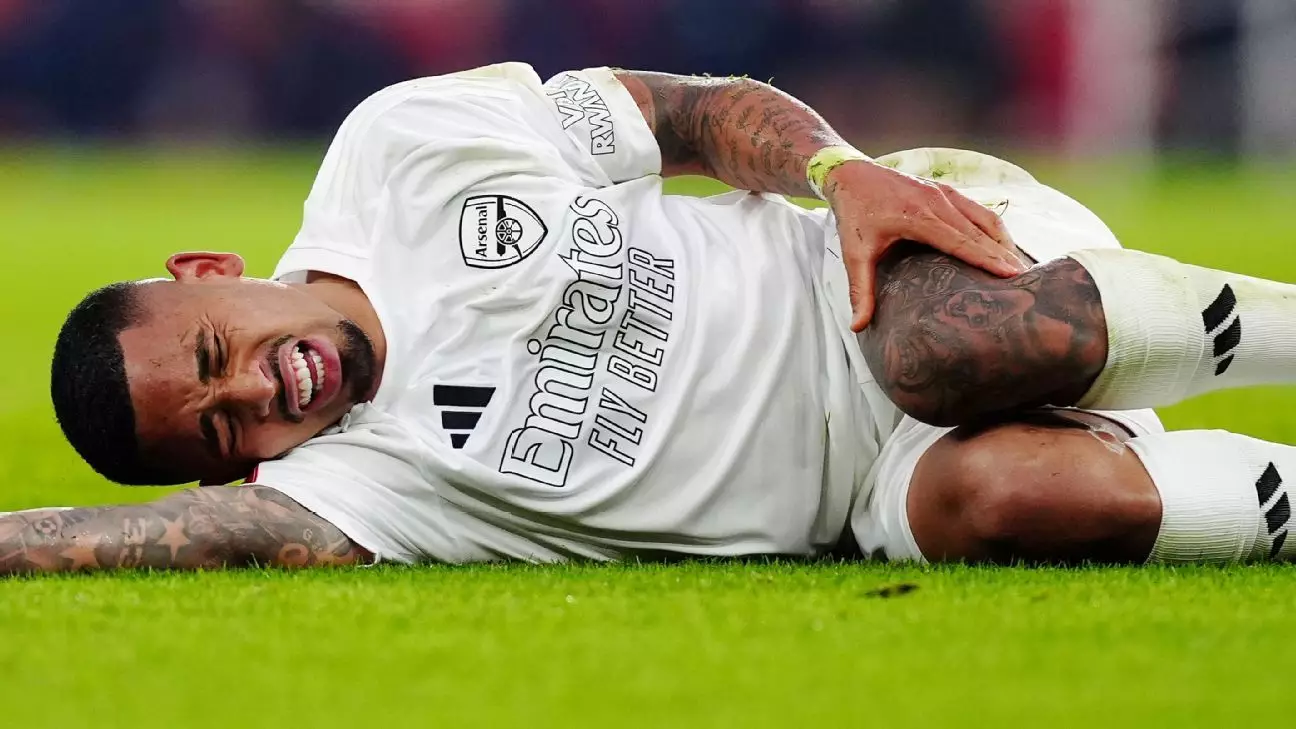Arsenal manager Mikel Arteta recently disclosed troubling news regarding forward Gabriel Jesus, whose knee injury appears to be quite severe. Initial reports suggest a ruptured anterior cruciate ligament (ACL), a setback that could sideline him for the rest of the season. This scenario represents not only a major blow to Jesus, who had just begun hitting his stride in front of goal, but also raises concerns about Arsenal’s attacking structure moving forward. The implications of such an injury ripple beyond the pitch, affecting team morale and strategic options.
In his press conference, Arteta expressed cautious optimism while acknowledging the gravity of the situation. “We need to review with one more specialist,” he stated, indicating that finalizing the extent of the injury would require further evaluation. This uncertainty creates an atmosphere of anxiety among fans and players alike. The fact that Jesus departed the game against Manchester United in the 40th minute due to what seemed an innocuous challenge amplifies the shock; the injury happened with former teammate Bruno Fernandes involved, which adds an ironic twist given the competitive nature of both clubs.
The injury to Jesus is particularly disheartening in light of the recent uptick in his performance levels, highlighted by a brace against Crystal Palace and crucial goals in previous matches. His ability to score vital goals appeared critical for Arsenal’s contest in the Premier League. With Jesus now potentially out, Arteta’s squad depth is under scrutiny. Players like Bukayo Saka and Takehiro Tomiyasu are already recovering from injuries, further depleting Arsenal’s front line options. The situation calls into question the resilience and adaptability of the squad, crucial elements for competing at the highest level.
Arteta’s acknowledgment of the necessity to strengthen the squad during the January transfer window presents a complex challenge. He emphasized that player recruitment involves multiple parties, which often complicates negotiations. “To recruit a player there are three parties who have to agree to that,” he remarked, underlining the intricacies involved in bringing new talent into the club. This statement also reveals the club’s proactive approach in seeking improvements, though it highlights the balancing act of maintaining team unity while seeking reinforcements. This delicate equilibrium will be tested as the transfer market progresses.
With the season still young and various competitions ahead, the loss of a key player like Jesus poses significant questions about Arsenal’s trajectory. The team must not only adapt strategically but also manage the psychological impact of such injuries on team dynamics. The next few weeks will be critical for Arteta as he navigates this predicament by reinforcing his squad effectively while keeping morale high amidst adversity. The depth of Arsenal’s roster will be put to the test, and the club’s ability to rebound from this setback will ultimately define their fate moving forward in the season.


Leave a Reply